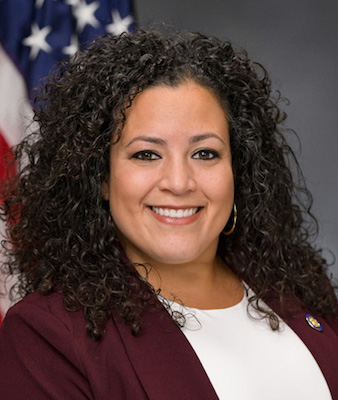S T A T E O F N E W Y O R K
________________________________________________________________________
7222
2025-2026 Regular Sessions
I N S E N A T E
April 4, 2025
___________
Introduced by Sen. BAILEY -- read twice and ordered printed, and when
printed to be committed to the Committee on Insurance
AN ACT to amend the insurance law, in relation to indexing fixed amounts
and clarifying compliance
THE PEOPLE OF THE STATE OF NEW YORK, REPRESENTED IN SENATE AND ASSEM-
BLY, DO ENACT AS FOLLOWS:
Section 1. Subsection (b) of section 4228 of the insurance law is
amended by adding three new paragraphs 30, 31 and 32 to read as follows:
(30) "CPI" MEANS THE CONSUMER PRICE INDEX FOR ALL URBAN CONSUMERS FOR
THE UNITED STATES AS REPORTED BY THE BUREAU OF LABOR STATISTICS OF THE
UNITED STATES DEPARTMENT OF LABOR, OR ITS SUCCESSOR INDEX.
(31) "CPI FOR THE PRECEDING CALENDAR YEAR" MEANS THE AVERAGE OF THE
CPI AS OF THE CLOSE OF THE TWELVE-MONTH PERIOD ENDING ON AUGUST THIRTY-
FIRST OF SUCH CALENDAR YEAR.
(32) "PERCENT INCREASE IN INFLATION" MEANS THE PERCENTAGE, IF ANY, BY
WHICH THE CPI FOR THE PRECEDING CALENDAR YEAR EXCEEDS THE CPI FOR THE
YEAR BEGINNING SEPTEMBER FIRST, TWO THOUSAND TWENTY-FOUR AND ENDING
AUGUST THIRTY-FIRST, TWO THOUSAND TWENTY-FIVE.
§ 2. Paragraph 2 of subsection (c) of section 4228 of the insurance
law, as added by chapter 616 of the laws of 1997, subparagraphs (E) and
(G) as amended by chapter 13 of the laws of 2002, is amended to read as
follows:
(2) Total selling expenses shall include the following expenses
incurred directly or indirectly by the company, without regard to wheth-
er they are incurred in the company's home office or in a field or
regional office:
(A) commissions;
(B) the increase during the year in the amount of outstanding advances
and loans to agents, including any accrued and unpaid interest thereon,
and including amounts charged off by the company, however, if such
EXPLANATION--Matter in ITALICS (underscored) is new; matter in brackets
[ ] is old law to be omitted.
LBD10595-02-5
S. 7222 2
amount is negative, it shall be treated as a reduction of the amount of
total selling expenses;
(C) the [expense of direct solicitation advertising that either
includes an application or solicits a response to obtain an application
for a policy or contract regulated under this section;
(D)] FOLLOWING distribution, marketing and sales support expenses
directly related to the procurement of new business[, which includes but
is not limited to]:
(i) recruiting and training of agents, including related recordkeep-
ing;
(ii) sales management and supervision; AND
(iii) clerical functions in sales offices[; and
(iv) sales support functions, including but not limited to advanced
underwriting support, proposals, illustrations, competition aids and
related systems and equipment, including personal computers, owned by
the company and used in the sales process];
[(E)] (D) any expense allowance paid to the agent or broker by the
company or any expenses of the agent, agency or broker, assumed or reim-
bursed by the company;
[(F) the] (E) TRAVEL expenses [of sales conferences, training meetings
and awards], MEALS AND ENTERTAINMENT paid for by the company; and
[(G)] (F) all other compensation paid to or expense incurred on behalf
of active and retired agents and brokers, including the cost of any
security benefits, BUT EXCLUDING ANY ANNUAL MARKETING OR DISTRIBUTION
FEE ON A MUTUAL FUND OR ANY PORTION THEREOF RECEIVED BY THE COMPANY
PURSUANT TO RULE 12B-1 UNDER THE INVESTMENT COMPANY ACT OF 1940, 17
C.F.R. 270.12B-1, WHICH IS THEN PAID BY THE COMPANY TO THE AGENT OR
BROKER.
§ 3. Subparagraph (F) of paragraph 2 of subsection (e) of section 4228
of the insurance law, as amended by chapter 13 of the laws of 2002, is
amended to read as follows:
(F) If a company employs one or more salaried employees whose princi-
pal function is [other than] NOT the sale of new policies or contracts
and [other than] NOT the supervision of agents or agencies, and if no
more than twenty-five percent of the TOTAL compensation of such employ-
ees is related to [sales results] BUSINESS PERSONALLY PRODUCED BY SUCH
EMPLOYEES, [the compensation of such employees is not subject to] the
provisions of this subsection or subsection (d) of this section SHALL
NOT APPLY TO SUCH EMPLOYEES' TOTAL COMPENSATION, notwithstanding that
they may be licensed as life insurance agents.
§ 4. Paragraph 3 of subsection (e) of section 4228 of the insurance
law, as added by chapter 616 of the laws of 1997, is amended to read as
follows:
(3)(A) A company may pay reasonable training allowance subsidies to
agents pursuant to a plan of agent compensation, provided that such
agents are full-time agents of the company and the principal business
activity of such agents is the solicitation of policies and contracts
primarily but not necessarily exclusively for the company, and its
affiliates, and such agents are not simultaneously receiving training
allowance from any other life insurance company.
(B) Agents receiving training allowance subsidies may also receive
expense allowance payments.
(C) An agent is eligible to receive such a training allowance subsidy,
provided (i) such agent has earned less than twenty thousand dollars
from the sale of policies and contracts cumulatively during the three
years prior to such agent's appointment, [or] (ii) less than twenty-five
S. 7222 3
percent of such agent's earned income has been received from the sale of
policies and contracts during each of the three years prior to appoint-
ment, OR (III) LESS THAN TWENTY-FIVE PERCENT OF SUCH AGENT'S WORKTIME
DURING EACH OF THE THREE YEARS PRIOR TO APPOINTMENT WAS ALLOCATED TO
INDIVIDUAL LIFE AND ANNUITY SALES. THE COMPANY MAY ESTABLISH THAT AN
AGENT IS ELIGIBLE TO RECEIVE A TRAINING ALLOWANCE SUBSIDY BY REQUIRING
THE AGENT TO ATTEST THAT SUCH AGENT MEETS ONE OF THE CRITERIA SET FORTH
IN THIS SUBPARAGRAPH PRIOR TO APPOINTMENT. SUCH ATTESTATION SHALL BE
SUFFICIENT TO ESTABLISH ELIGIBILITY, PROVIDED THE COMPANY DOES NOT HAVE
ACTUAL KNOWLEDGE TO REJECT THE ATTESTATION BASED ON THE AGENT'S CREDEN-
TIALS AND BACKGROUND.
(D) An agent receiving such training allowance subsidies may not
receive, on a cumulative basis, for an agent in the first year of such
subsidies, the greater of [twenty-eight] FIFTY-FOUR thousand dollars and
sixty percent of the first year commission limit, and for an agent in
the second year of such subsidies, the greater of [forty-four] EIGHTY-
FIVE thousand dollars and sixty percent of the first year commission
limit in the first year and forty percent of the first year commission
limit in the second year, and for an agent in the third year of such
subsidies, the greater of [fifty-four] ONE HUNDRED FIVE thousand dollars
and sixty percent of the first year commission limit in the first year
and forty percent of the first year commission limit in the second year,
and twenty percent of the first year commission limit for the third
year, and for an agent in the fourth year of such subsidies, the greater
of [sixty] ONE HUNDRED SIXTEEN thousand dollars and sixty percent of the
first year commission limit in the first year and forty percent of the
first year commission limit in the second year, twenty percent of the
first year commission limit in the third year, and ten percent of the
first year commission limit in the fourth year.
(E) With respect to any agent eligible to receive training allowance
subsidy who has earned at least [sixty-six] ONE HUNDRED TWENTY-SEVEN
thousand dollars of income during either of the two calendar years imme-
diately preceding commencement of receipt of training allowance subsi-
dies, a company may pay additional training allowance subsidies of [one]
TWO thousand dollars to such agent during each of the first two years of
his receipt of training allowance subsidies for every [two] FOUR thou-
sand dollars of such earned income in excess of [sixty-six] ONE HUNDRED
TWENTY-SEVEN thousand dollars, provided that the cumulative training
allowance subsidy does not exceed [forty-five] EIGHTY-SEVEN thousand
dollars in such agent's first year of receipt of training allowance
subsidy and provided further that the agent receives not greater than
[sixty] ONE HUNDRED SIXTEEN thousand dollars in total training allowance
subsidies.
(F) For purposes of this paragraph, the period of time that a person
worked for a company under a company-sponsored training program and was
not acting as an agent for that company shall not be counted as time
spent receiving training allowance subsidies, and any salary paid by the
company to that person during that time shall not count toward the cumu-
lative maximum training allowance subsidy.
(G) The superintendent shall [periodically] adjust the cumulative
maximum training allowance subsidy limits set forth in this paragraph
ANNUALLY BY THE PERCENT INCREASE IN INFLATION. The superintendent may
also, at any time, approve training allowance subsidies with cumulative
maximum amounts that exceed the limits set forth in this paragraph.
(H) A company may, upon approval of the superintendent, establish a
plan for training allowance subsidies for which the conditions of eligi-
S. 7222 4
bility or the amounts or periods of subsidy, of any of these, differ
from those set forth in this subsection. The superintendent shall
approve such a plan, subject to such conditions as he may prescribe, if
he finds that it is likely to meet the objective of developing new
agents for the sale of policies or contracts or both in a cost-effective
manner.
§ 5. Paragraph 6 of subsection (e) of section 4228 of the insurance
law, as amended by chapter 13 of the laws of 2002, is amended to read as
follows:
(6) A company, including any person, firm or corporation on its behalf
or under any agreement with it, may pay or award, or permit to be paid
or awarded, prizes and awards to agents and brokers pursuant to a plan
of agent or broker compensation, provided that no single prize or award
may exceed a value of [two] FIVE hundred [fifty] dollars, and that the
total value of such prizes and awards paid or awarded to any agent or
broker within a calendar year may not exceed [one] TWO thousand dollars.
Notwithstanding the foregoing, a company may also pay or award not more
frequently than monthly a prize or award valued at not more than [twen-
ty-five] FIFTY dollars. The costs of all such prizes and awards shall
not be included in applying the limits established in subsection (d) of
this section. The superintendent may authorize higher limits on the
value of prizes and awards than those set forth herein. ON THE FIRST DAY
OF EACH YEAR BEGINNING JANUARY FIRST, TWO THOUSAND TWENTY-SIX, THE
LIMITS IN THIS SUBPARAGRAPH SHALL BE ADJUSTED ANNUALLY BY THE PERCENT
INCREASE IN INFLATION.
§ 6. Subparagraph (E) of paragraph 1 and paragraph 2 of subsection (f)
of section 4228 of the insurance law, as added by chapter 616 of the
laws of 1997, are amended to read as follows:
(E) All filings and related correspondence shall be proprietary and
confidential, and not disclosed by the superintendent. NOTHING CONTAINED
IN THIS SECTION OR ANY OTHER PROVISION OF LAW SHALL PROHIBIT A COMPANY
FROM MAKING CHANGES TO ANY COMPENSATION PAYABLE ON POLICIES OR CONTRACTS
THAT ARE IN FORCE AND SUBJECT TO AN EXISTING PLAN, PROVIDED THAT THE
CHANGED COMPENSATION MEETS THE APPLICABLE REQUIREMENTS OF SUBSECTIONS
(D) AND (E) OF THIS SECTION. A COMPANY SHALL BE PERMITTED TO MAKE SUCH
CHANGES, AND CHANGES WHOSE EFFECT IS TO INCREASE OR OTHERWISE CHANGE,
BUT NOT REDUCE, THE COMPENSATION SHALL BE SET FORTH PURSUANT TO A
COMPENSATION PLAN THAT IS FILED IN ACCORDANCE WITH THE SAME REQUIREMENTS
OF THIS PARAGRAPH THAT WOULD APPLY IF SUCH COMPENSATION APPLIED ONLY
PROSPECTIVELY TO NEW BUSINESS. Changes whose effect is to reduce or not
increase the compensation payable to every individual covered by the
arrangement in each and every year, need not be filed with the super-
intendent, but must be maintained in the company's records for at least
six years.
(2) The annual statement schedule for reporting compliance ON AN
AGGREGATE BASIS with subsection (c) of this section shall be signed by a
knowledgeable officer of the company. The signing of the schedule shall
be deemed confirmation by the officer that the officer has performed a
personal review of the information included and responses provided to
the interrogatories. The signature is to be preceded by the following
statement: "I have reviewed the sources of total selling expenses and,
to the best of my knowledge and belief, on the basis of the projected
experience over the next three years based on reasonable assumptions,
including changes currently being contemplated, the company's expenses
will not exceed the limit imposed thereon by New York Insurance Law
Section 4228." If the officer cannot attest to the final clause of this
S. 7222 5
statement, the officer must disclose the year or years in which expenses
are expected to exceed the limit and the amount by which the limit is
expected to be exceeded.
§ 7. The opening paragraph of paragraph 5 of subsection (f) of section
4228 of the insurance law, as amended by chapter 13 of the laws of 2002,
is amended to read as follows:
Any company making one or more payments that exceed any limit in
subsection (d) of this section that is unable to recover such excess
payments shall notify the superintendent within [thirty] NINETY days of
the date that it learns or realizes that it exceeded the limit; however,
if the company recovers such excess payments prior to the required
notification date, OR, FOR AGENTS OR BROKERS WHO ARE NO LONGER APPOINTED
WITH THE COMPANY, THE COMPANY HAS MADE REASONABLE EFFORTS TO RECOVER
SUCH EXCESS PAYMENTS, it need not make such notification. At that time,
the company shall report the reason the company exceeded the limit, the
number of agents and brokers to whom payments in excess of the limit
were made, and the amount of money paid in excess of the limit, and
shall describe the actions the company will take promptly to prevent any
further instances of it exceeding this limit.
§ 8. This act shall take effect immediately.


